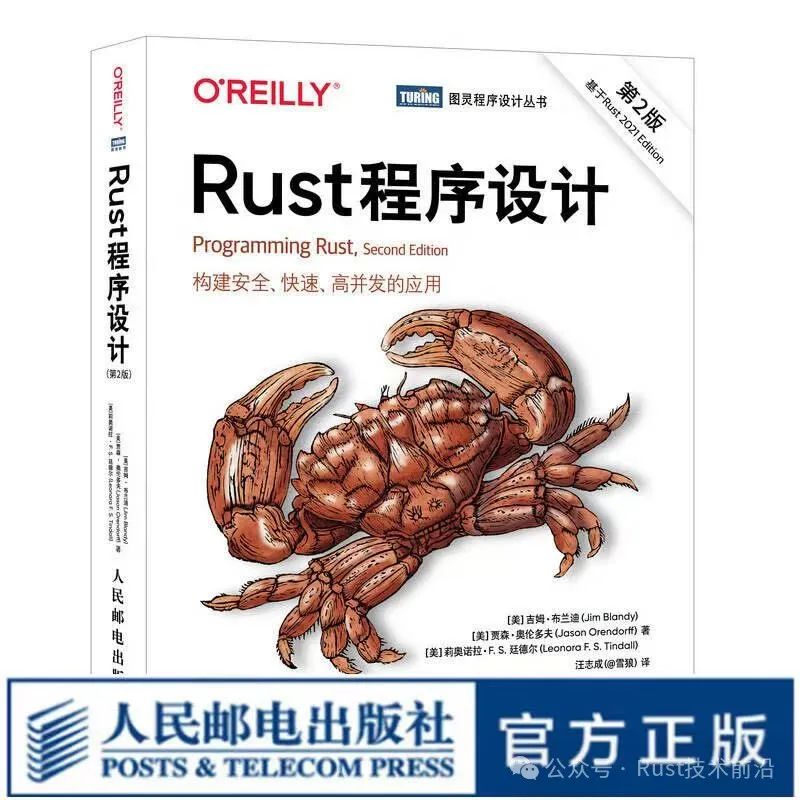First, let’s talk about the book giveaway. This issue offers readers a chance to win a copy ofPeople’s Posts and Telecommunications Press‘s‘Rust Programming’, a comprehensive guide that explains the core concepts and advanced features of the Rust language in an accessible manner, suitable for developers of all levels to learn and master modern system programming techniques focusing on safety and concurrency. If you want this book, leave a comment at the end of the article to participate in the draw.

This account has ongoing book giveaways, click 👇 to follow」
The world of frontend development is changing rapidly, and even the most experienced developers can feel overwhelmed. Every time a new framework, design system, or architectural pattern emerges, it comes with grand statements about how it will change the way we write code.
Today, we will exploreRust — a language that enables everyone to build reliable and efficient software.
Introduction
As a frontend developer, you might primarily use JavaScript as your programming language. Its dynamic and loosely typed features can sometimes make it difficult to learn other strictly typed languages. However, Rust is designed to make this learning curve less steep, which means you won’t encounter the usual frustrations when learning languages like C++.
While the similarities between Rust and JavaScript are minimal, such as both using<span><span>let</span></span> and <span><span>const</span></span> for variable declarations, these small commonalities do make me feel more at ease when using Rust, as I am already familiar with these keywords.
Moreover, Rust’s syntax is not verbose — it is very straightforward and concise.
What is Rust?
According to the official documentation,the Rust programming language helps you write faster and more reliable software. In programming language design, high usability and low-level control are often at odds; however, Rust challenges this contradiction. By balancing powerful technical capabilities with an excellent developer experience, Rust allows you to control low-level details (like memory usage) without having to deal with the traditional hassles associated with such control.
Who is Rust for?
If you are a complete beginner programmer, Rust may not be a good starting point. The official documentation assumes that the reader has a basic understanding of another programming language, but does not specify which one.
For those particularly concerned with memory efficiency, Rust is an excellent choice. With Rust, anyone can engage in system-level work that was previously only accessible to